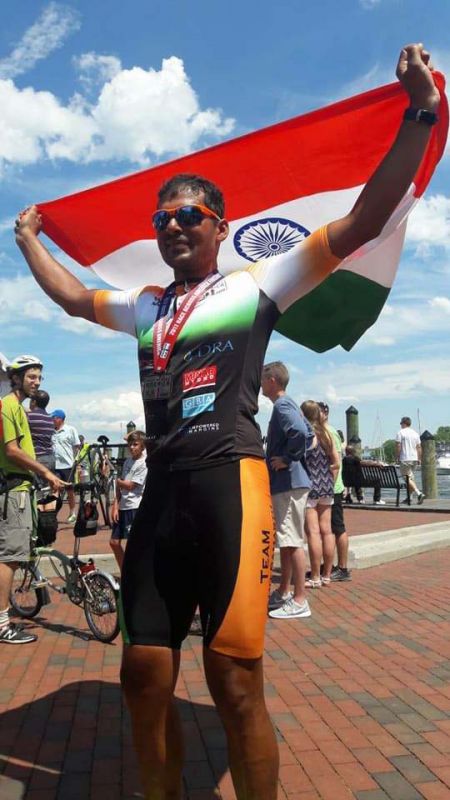Runversation: The guts and glory of an extreme athlete

Are you a novelty seeker or someone who has a strong ‘need for achievement’ personality? The ‘need for achievement’ personality trait is characterised by an enduring and persistent concern with setting and meeting high standards of achievement. This need is influenced by internal drive for action (intrinsic motivation), and the pressure exerted by the expectations of others (extrinsic motivation).
Each of us must understand and know what motivates us and try to maintain a healthy balance between hubris and humility. Abraham Maslow defined a peak experience as “a profound moment of love, understanding, happiness, or rapture”.
Participants in extreme endurance events push themselves beyond what seems possible — running, swimming and biking for seemingly endless hours through unforgiving and treacherous terrain — all for the satisfaction of knowing they raised the bar higher than they had before. And successfully sailed over it.
Race Across America, or RAAM, an ultra-cycling event, is considered as the pinnacle of athletic achievement not only in cycling circles but within the larger sporting community as well.
Look at these gruelling facts: 4,800 km of continuous cycling, sleep deprivation and disorientation, riding through varied terrain with over 170,000 feet of elevation, across 12 states with a 12 day cut-off time for solo racers.
 Amit’s message: everyone must engage in some sport during their lifetime.
Amit’s message: everyone must engage in some sport during their lifetime.
Amit Samarth, a doctor by profession and an avid marathoner, tri-athlete and cyclist, became one of only two Indians ever to complete the RAAM, 35 years since it first started.
Having heard about this race last year while participating in a cycling event, Amit was keen to go for it even though it’s prohibitively expensive and a logistical nightmare, preparing for the support crew, food management etc.
“RAAM is not just a bike race. It is a big project management and needs responsible people to provide support,” he says.
Riding for 11 days and 21 hours, “there is so much going on in your head”, Amit said. “You’re always assessing risk and reward. It’s definitely a struggle, and my mantra was: one step after the other. Just keep plodding along and believing that you’re going to get there. That’s pretty core to my beliefs, and it seems to have worked pretty well.”
It’s a matter of attitude too: “Sometimes you can’t look at the challenge as a whole, the path is too daunting. But if you just think about not stopping, about keeping going the best you can, then eventually you get there. Once you finish, it’s an awesome feeling — a victory of physical and mental ferocity,” says this awesome achiever.
Sports psychologists say that by persevering at these extreme endurance events, competitors are seeking the excitement, the unexpected moments that have been leached out of our 9-to-5 lives.
Having conquered RAAM, which has evolved into the holy grail of ultra-cycling, Amit says his message through RAAM is that everyone should engage in some sport during their lifetime. “It will keep you healthy, young and more adventurous. Sports will bring conflict in your life, which will keep you alive and kicking.”
Endurance sports teach us how to be resilient and experience a sense of well-being. It shows us on a fundamental level that we are capable of more than we thought. And it offers a quiet place away from the intrusions of daily life, even our own thoughts. It offers us a sense of peace and purpose.

